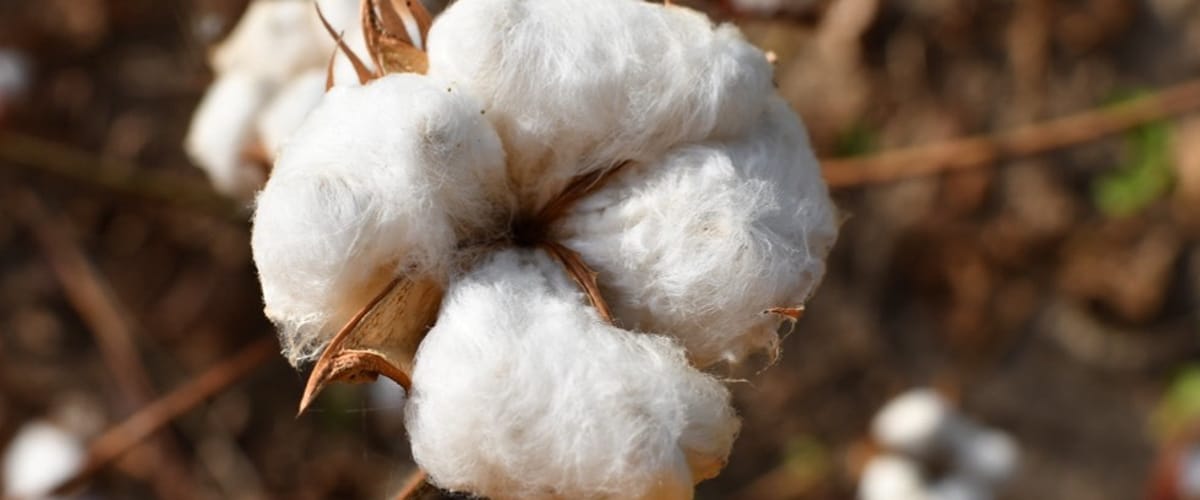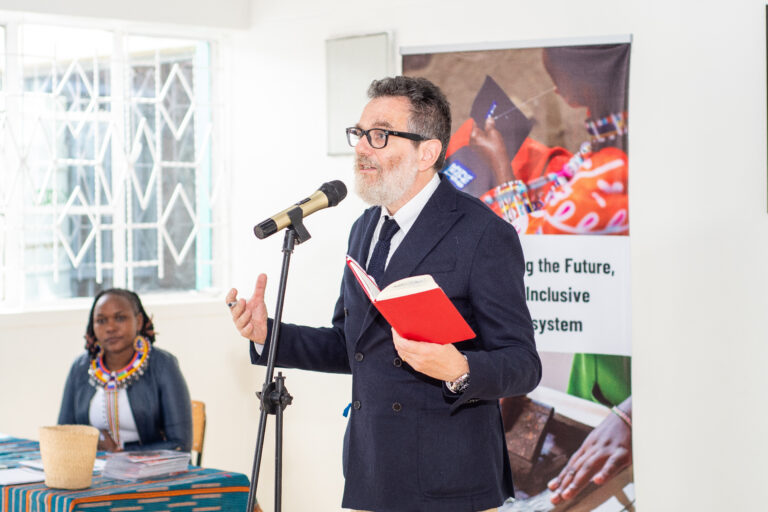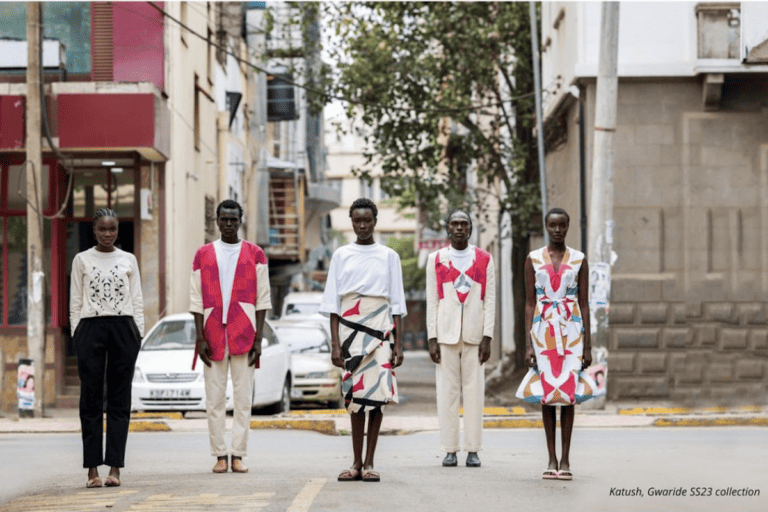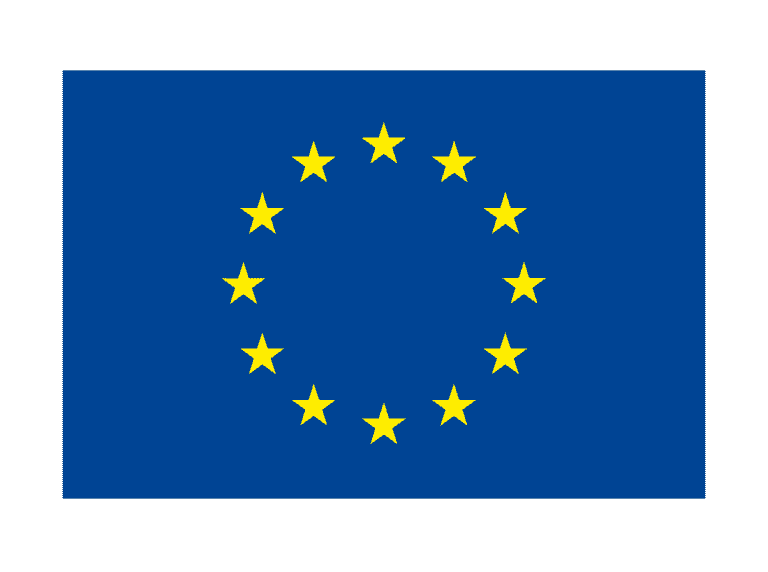Cotton: Minimising carbon footprint in Burkina Faso with CABES
Since 2014, the Ethical Fashion Initiative has worked in Burkina Faso, a major cotton producer and exporter. CABES are EFI’s social enterprise partner based in Ouagadougou, with a network of 94 cooperatives and over 2400 artisans weaving organic cotton into traditional West African textiles in Burkina Faso. Despite being a large network of cotton producers and exporters, CABES’ supply chain has a low carbon footprint. Organic farming and sustainable production have helped CABES members maintain a low environmental impact.
The carbon footprint of cotton production varies greatly, depending on a number of factors. These include the variety of cotton, location, natural conditions, and cotton cultivation systems. Cotton grown conventionally requires an excessive amount of water, energy, and chemicals, resulting in high greenhouse gas emissions. Organic cotton production, on the other hand, avoids the use of toxic chemicals and benefits from pluvial irrigation. Organic cotton has slightly lower yields than traditional cotton, but because input costs are significantly lower, organic cotton has better profit margins.
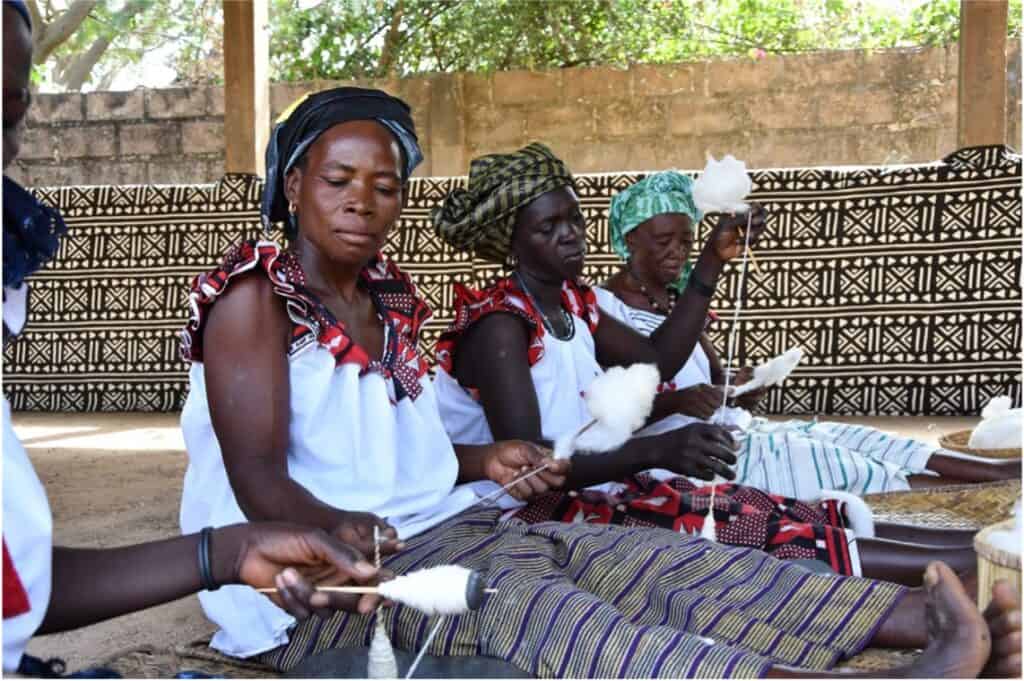
To gather data on CABES’ sustainability, we worked with My Climate to conduct a study on the carbon footprint their cotton production in Burkina Faso. We examined all parts of the cotton supply chain, from cultivation to packaging, to measure the carbon footprint and highlight areas for improvement. According to the study, the production of cotton in CABES results in the emission of 7.58 kg of CO2 per kg of fabric (as of 2021). These are great results when one considers that the average amount of greenhouse gases produced by the textile industry is between 20-23 kgs per kilogram of cotton fabric.[1]
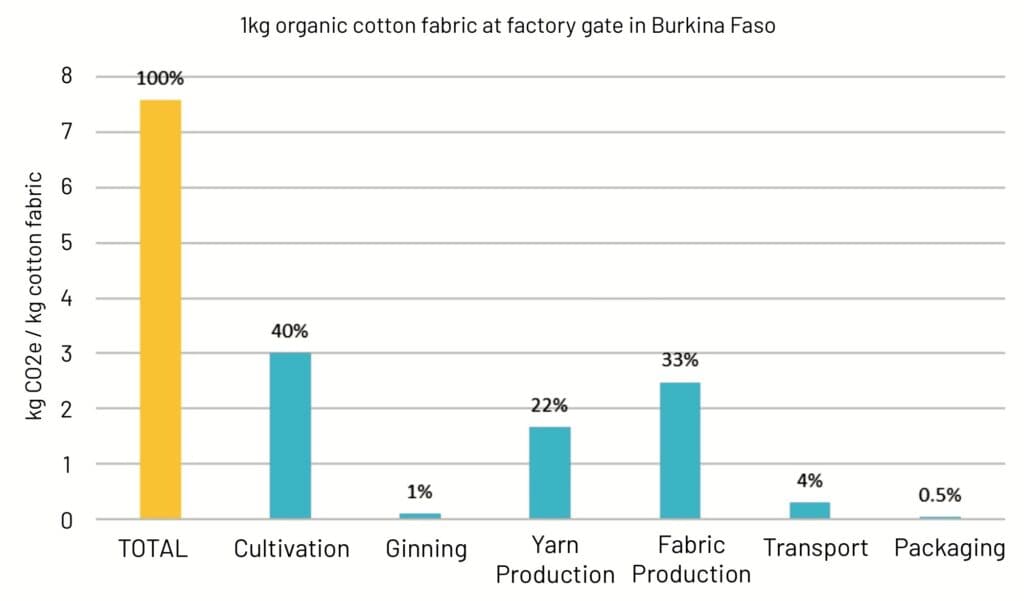
Sustainability is a priority for CABES cooperatives in Burkina Faso. The cotton is grown organically, which reduces the risk of water contamination and poisoning by being pesticide- and chemical-free. An eco-benefit of working with Burkinabé grown cotton is that the farming relies on rainfed techniques, with no irrigation, which minimises water usage. CABES products are dyed with natural dyes or GOTS (Global Organic Textile Standard) certified reactive dye, which is fully compliant with international environmental standards. In addition, a dyeing facility complete with water treatment systems is now in the planning stages.
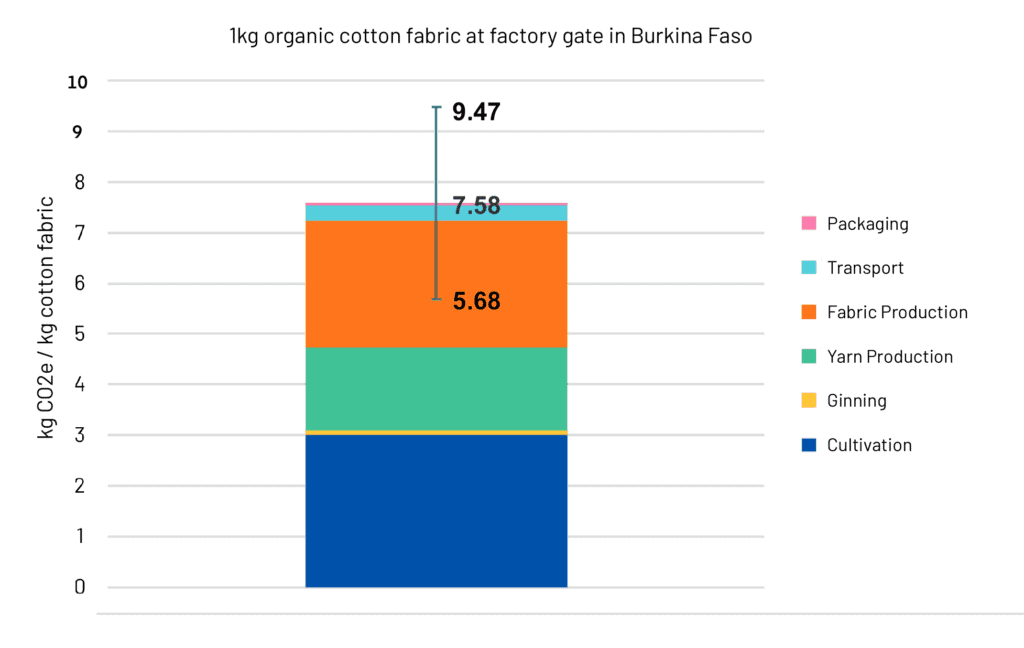
CABES works closely with Burkinabé farmers to source locally grown organic cotton to produce high-quality export textiles. Typically the cultivation, yarn production, and fabric production stages are major contributors to carbon emissions in conventional cotton. Frequent use of mechanical energy in large-scale production systems can produce high emissions. But for this local Burkinabé supply chain, the organic smallholder farms in the CABES cooperative avoid the use of large machinery and mostly rely on manual labour to reduce their environmental impact.
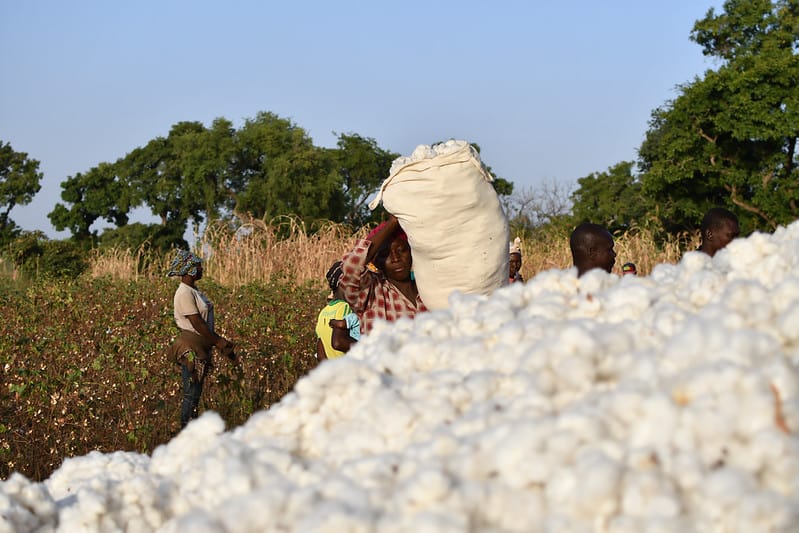
Every skein of yarn produced by CABES cooperatives is hand-spun and then meticulously handwoven into high-quality textiles. Picking, spinning, and weaving cotton fibres by hand reduces electricity consumption.
Social sustainability is equally important to the cooperative; CABES was created to make a positive difference in the world. The cooperative aspires to provide meaningful work for community networks, many of whom are members of marginalised groups and live in areas impacted by climate change, insecurity, and migration. The Ethical Fashion Initiative code of conduct is incorporated into all CABES’s workshops. Their team of social workers collaborate with local organisations to assess the impact of their work and ensure that work is making a positive difference and improving people’s lives.
For CABES, sustainability is a continuous journey and their next goal in their green transition involves the installation of solar panels.
Discover more at cabes.bf
[1] https://www.cosetex.it/en/news/silk-eco-textiles-fiber-yarn-co2-pollution-products/

